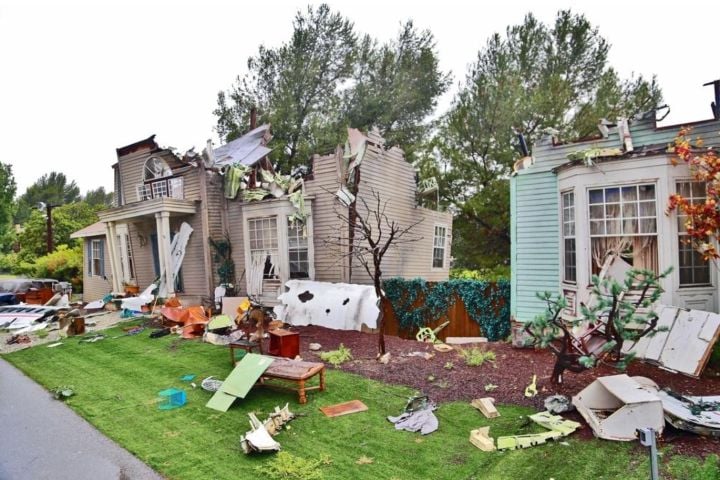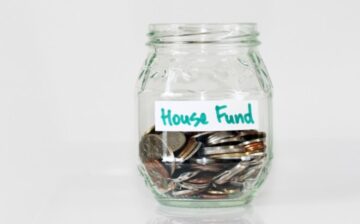Natural disasters can devastate communities, leaving families without homes and significant economic repercussions in their wake. Effective recovery strategies become crucial as the frequency and severity of such events increase due to climate change. One often overlooked component of disaster recovery is the role of Federal Housing Administration (FHA) Loans. These loans can provide vital support for individuals and families looking to rebuild after a disaster, offering an accessible path to homeownership and stability.
This article explores how FHA Loans contribute to disaster recovery, the specific programs available, and the broader implications for affected communities.

What Are FHA Loans?
FHA Loans are government-backed mortgages designed to help low- and moderate-income borrowers qualify for home financing. With benefits such as lower down payment requirements, flexible credit standards, and competitive interest rates, FHA Loans make homeownership attainable for many who might otherwise struggle to secure traditional financing.
Key Features of FHA Loans
- Low down payments: FHA Loans require a minimum down payment of just 3.5% for borrowers with a credit score of 580 or higher. This feature is especially beneficial for disaster survivors with limited savings after a catastrophic event.
- Flexible credit requirements: FHA Loans are accessible to borrowers with lower credit scores, making it easier for those who have faced financial hardship due to a disaster to qualify for financing.
- Assistance with closing costs: FHA Loans allow sellers to contribute toward closing costs, further easing the financial burden on buyers.
FHA Loans in the Context of Disaster Recovery
1. Facilitating Home Purchase after Displacement
After a disaster, many families are forced to leave their homes due to damage or destruction. FHA Loans can provide a critical lifeline, allowing displaced families to purchase new homes in safe areas. By making financing accessible, FHA Loans enable families to transition from temporary housing to permanent residences.
2. Supporting Home Rehabilitation
In addition to helping families purchase new homes, FHA Loans can also support the rehabilitation of damaged properties. The FHA 203(k) Loan Program allows borrowers to finance both the purchase of a home and the cost of necessary repairs and improvements. This program is particularly relevant for disaster recovery, as it enables homeowners to renovate and restore properties that may have suffered damage.
Key Features of FHA 203(k) Loans:
- Single mortgage: Homebuyers can secure one loan that covers the purchase price and renovation costs, simplifying the financing process.
- Flexibility in repairs: Borrowers can use the funds for a wide range of improvements, from structural repairs to aesthetic enhancements, which can help restore a community’s character.
3. Providing Financial Stability
Disasters often lead to job loss and income instability, making it challenging for families to qualify for traditional mortgages. FHA Loans are designed to accommodate borrowers with varying financial situations, offering flexible terms that can ease the burden of monthly payments.
4. Reducing Housing Costs
Housing costs can soar in the aftermath of a disaster due to increased demand for available properties. FHA Loans can help mitigate this by allowing families to purchase homes at lower interest rates, making homeownership more affordable during a time of financial uncertainty.
Broader Implications for Affected Communities
1. Community Resilience
The recovery of individual households contributes to the overall resilience of communities. By enabling families to purchase homes and rebuild, FHA Loans play a vital role in restoring the social fabric of neighborhoods. Strong communities are better equipped to withstand future disasters, making them more sustainable in the long term.
2. Economic Revitalization
Rebuilding homes has a ripple effect on local economies. When families move back into their homes, they spend on goods and services, stimulating the local economy. Construction and renovation projects also create jobs, providing employment opportunities for residents during the recovery process.
3. Reducing Homelessness
Access to affordable housing options through FHA Loans can help prevent homelessness following disasters. By providing financial assistance for home purchases and repairs, these loans help ensure that families have stable living conditions, reducing the risk of displacement.
Challenges and Considerations
While FHA Loans offer significant benefits in disaster recovery, some challenges remain:
1. Awareness and Access
Many disaster survivors may not be aware of the FHA loan options available to them. Increasing awareness of these programs through community outreach and education can help ensure that affected individuals take advantage of the support offered.
2. Documentation Requirements
FHA Loans come with specific documentation requirements, which may pose challenges for disaster survivors who may have lost important records in the chaos. Streamlining the application process and providing assistance with documentation can help alleviate these concerns.
3. Market Conditions
In areas heavily impacted by disasters, housing markets can become competitive and expensive. While FHA Loans can provide financial assistance, borrowers may still face challenges finding available properties within their budget.
A Path to Recovery and Stability
FHA Loans play a crucial role in disaster recovery by providing accessible financing options for families looking to purchase homes or rehabilitate damaged properties. With features designed to accommodate diverse financial situations, these loans help restore stability to individuals and communities affected by natural disasters.
As we face the realities of climate change and its impact on housing, it is essential to leverage programs like FHA Loans to support recovery efforts. By raising awareness and enhancing access to these valuable resources, we can strengthen the resilience of our communities and ensure that families have the opportunity to rebuild and thrive.
For more information about FHA Loans and how they can assist in disaster recovery, visit DSLD Mortgage.
We hope you found this blog post on The Role Of FHA Loans In Disaster Recovery, useful. Be sure to check out our post on What To Know About Residential Property Tax Loans for more great tips!
Have Experience in the Moving Industry? Want an Additional Income Stream? Work With All Around Moving!
Partner with us and join the Work With Us program, and we’ll help you make money by establishing your own moving consultant business. Read the terms by Clicking here to learn more.





